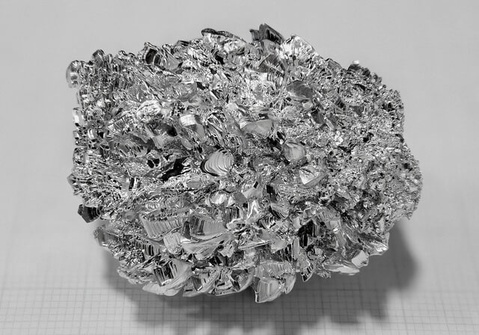Whether it's during exams or on a daily basis, because of work or other personal reasons, stress is an integral part of modern society, with all that it can cause: fatigue, anxiety, musculoskeletal, digestive, cardiovascular or sleep disorders.
Moreover, stress is considered a cofactor of various organic pathologies such as asthma, eczema, psoriasis, colopathy, etc., but also promotes vulnerability to inflammation and infection, as do psychological disorders: depression, alcoholism, etc.
Rather than relying on various and dangerous drug prescriptions, one of the first reflexes to adopt in case of stress is magnesium.
This mineral is one of the four most important minerals in our body and many effects are associated with it. It is involved in more than 300 metabolic reactions, including the proper functioning of the muscular and nervous systems, bone and immune health, and energy production. It also plays a role in stress reactivity and as an inhibitor of neuronal excitability. This is why magnesium is essential to regain energy and fight against hyperemotionality, headaches and insomnia generally linked to stress.
The recommended daily intake of magnesium is about 5 to 6 mg per kilogram, or between 350 and 420 mg for a 70 kg adult. But, of course, we are generally far from it. Most of us are deficient in magnesium for several reasons.
- First of all, as is often the case, our diet, as well as restrictive diets. Poor in trace elements and unbalanced, magnesium deficiency, among many others, is no exception.
- The use of diuretics which increases urinary loss, insufficient absorption linked to Crohn's disease and certain pollutants, for example, as well as certain pathologies of the thyroid, kidneys or adrenal glands, are also pointed out.
- Stress increases the body's need for magnesium while promoting its urinary leakage. A vicious circle is then set up that must be countered as soon as possible.
What are the best sources of magnesium?
- Some mineral waters (Hepar) are rich in magnesium, which, contrary to popular belief, is very well absorbed by the body.
- Legumes (lentils, navy beans...), dried oilseeds (Brazil nuts, almonds, hazelnuts, cashews), green leafy vegetables (spinach, cabbage) and seafood are also excellent sources of magnesium.

Brazil nuts - Whole grains such as buckwheat, quinoa, millet or even brown rice are those that provide the most of this trace element.
- Cocoa and dark chocolate are also very rich in it. 100 grams of cocoa powder can provide up to 499mg of magnesium!
Supplementation can be very useful in case of important needs in magnesium. It exists in a multitude of forms more or less easily assimilated.
For example, the oxides and hydroxides of magnesium will be the least well assimilated by the body. Chloride has a high bioavailability, but can be laxative. As for magnesium glycinate, it has a very good availability, without the laxative effect that can occur when taking other forms.
This type of supplement is often associated with vitamin B6 and taurine that promote the absorption or reabsorption of magnesium by cells.
Magnesium can be taken in high doses for a period of time (ranging from a few days to a few weeks), in the "attack" phase, to restore balance, and then in lower doses, when improvement in symptoms is felt.




